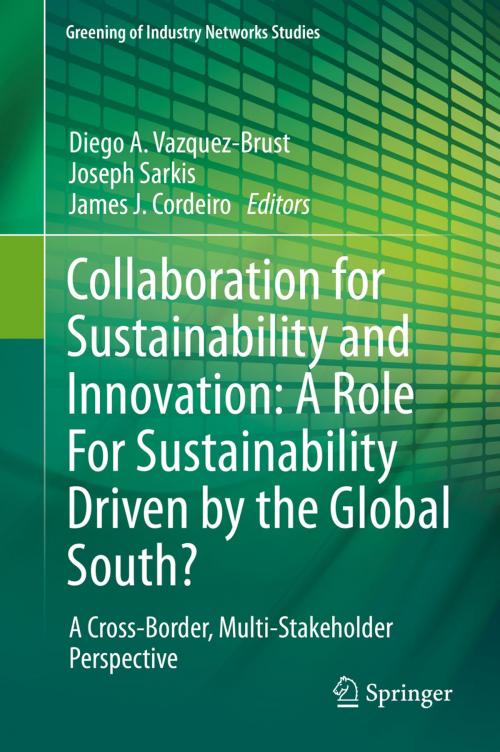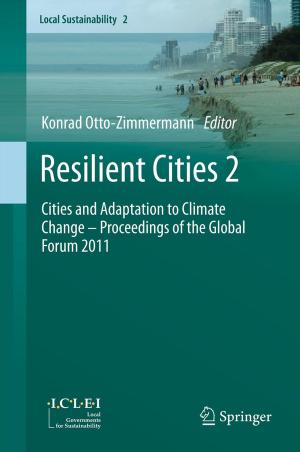Collaboration for Sustainability and Innovation: A Role For Sustainability Driven by the Global South?
A Cross-Border, Multi-Stakeholder Perspective
Business & Finance, Management & Leadership, Management Science, Nonfiction, Science & Nature, Science, Biological Sciences, Environmental Science, Nature| Author: | ISBN: | 9789400776333 | |
| Publisher: | Springer Netherlands | Publication: | November 20, 2013 |
| Imprint: | Springer | Language: | English |
| Author: | |
| ISBN: | 9789400776333 |
| Publisher: | Springer Netherlands |
| Publication: | November 20, 2013 |
| Imprint: | Springer |
| Language: | English |
A number of arguments are made by an international group of authors in this though provoking book about an understudied and socially important context. A future in which financial wealth transfers across the North-South divide from richer to poorer countries is far from sufficient for the relief of poverty and the pursuit of sustainability. Caution must be taken when growth is achieved through the liquidation of the natural wealth of poorer nations, in order to maintain a global economic status quo. Neither poverty reduction nor sustainability will ultimately be achieved. The financial collapse and social upheaval that might result will make the most recent economic downturn look trivial by comparison. What is more urgently needed instead, as argued in this book, is collaboration for sustainability and innovation in the global South, especially building on models originally developed in the South that are transferable to the North. In pursuit of a sustainable and more equitable future, the book examines such topics as Cross-Border Innovation in South-North Fair Trade Supply Chains; Potential Pollution Prevention Programs in Bangladesh; Digital Literacy and Social Inclusion in the South through Collective Storytelling and Eco-innovation at the ‘Bottom of the Pyramid’. Many of these stories and have not been told and need greater visibility. The book contributes in a meaningfully to the discussion of how innovation and sustainability science can benefit both sides in South-North innovation collaborations. It provides useful introduction to the topics, as well as valuable critiques and best practices. This back-and-forth flow of ideas and innovation is itself new and promising in the modern pursuit of a fair and sustainable future for all regions of our planet.
A number of arguments are made by an international group of authors in this though provoking book about an understudied and socially important context. A future in which financial wealth transfers across the North-South divide from richer to poorer countries is far from sufficient for the relief of poverty and the pursuit of sustainability. Caution must be taken when growth is achieved through the liquidation of the natural wealth of poorer nations, in order to maintain a global economic status quo. Neither poverty reduction nor sustainability will ultimately be achieved. The financial collapse and social upheaval that might result will make the most recent economic downturn look trivial by comparison. What is more urgently needed instead, as argued in this book, is collaboration for sustainability and innovation in the global South, especially building on models originally developed in the South that are transferable to the North. In pursuit of a sustainable and more equitable future, the book examines such topics as Cross-Border Innovation in South-North Fair Trade Supply Chains; Potential Pollution Prevention Programs in Bangladesh; Digital Literacy and Social Inclusion in the South through Collective Storytelling and Eco-innovation at the ‘Bottom of the Pyramid’. Many of these stories and have not been told and need greater visibility. The book contributes in a meaningfully to the discussion of how innovation and sustainability science can benefit both sides in South-North innovation collaborations. It provides useful introduction to the topics, as well as valuable critiques and best practices. This back-and-forth flow of ideas and innovation is itself new and promising in the modern pursuit of a fair and sustainable future for all regions of our planet.















